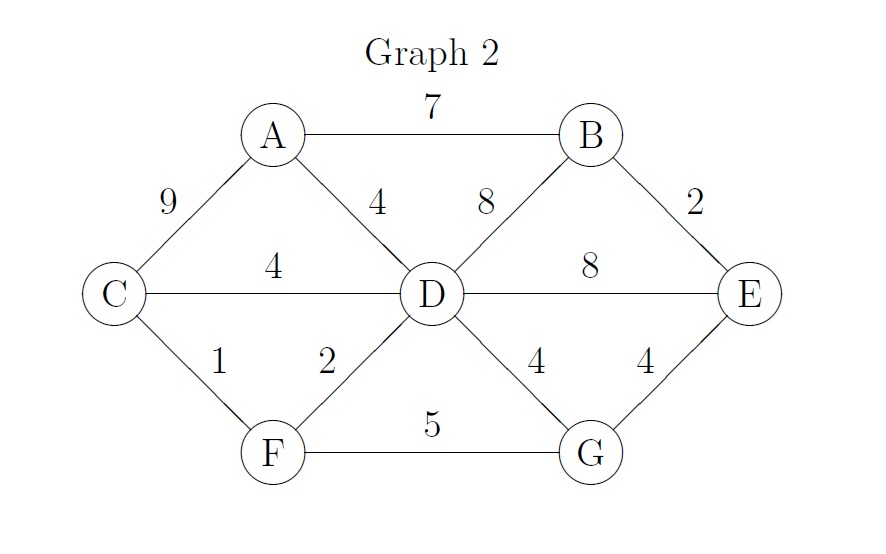Question: 1. (a) Find the shortest weighted path from C to all other vertices in graph 2 using Dijkstra's algorithm. List both the nodes on each
1. (a) Find the shortest weighted path from C to all other vertices in graph 2 using Dijkstra's algorithm. List both the nodes on each path and the cost of each path. (b) Specify what the dist field for each node is immediately after node D has been selected off of the priority queue (but not processed). 2. Show how to modify Dijkstra's algorithm to count the number of minimum costs paths from the source vertex s to all other vertices. 3. One idea to find minimum cost paths in graphs with negative weights (but still no negative cycles) is the following: Add a constant value c to all edge weights so that there are no negative weights and then use Dijkstra's algorithm to nd the minimum cost paths. Either prove that this approach works or find a small counter example that shows that it won't work. 4. Consider the following statement: If a directed graph G = (V;E) is acyclic and no edge between u and v is in E, then at least one of (u; v) or (v; u) can be added to E without creating a cycle. Give a (short) proof that this statement is correct or find a counterexample.

Dijkstra's algorithm
void dijkstra (vertix s)
cleandata();
s.dist =0 ;
pq.insert(s);
while (!pq.isEmpty()) {
v= pq.deletMin();
if (v.visited)
continue;
v.visited = true;
for (all (v,w)  E) {
E) {
if(v.dist + e.cost
w.dist = v.dist + e.cost;
w.prev = v;
pq.enque(w);
}
}
}
}
Graph 2 Graph 2
Step by Step Solution
There are 3 Steps involved in it

Get step-by-step solutions from verified subject matter experts


